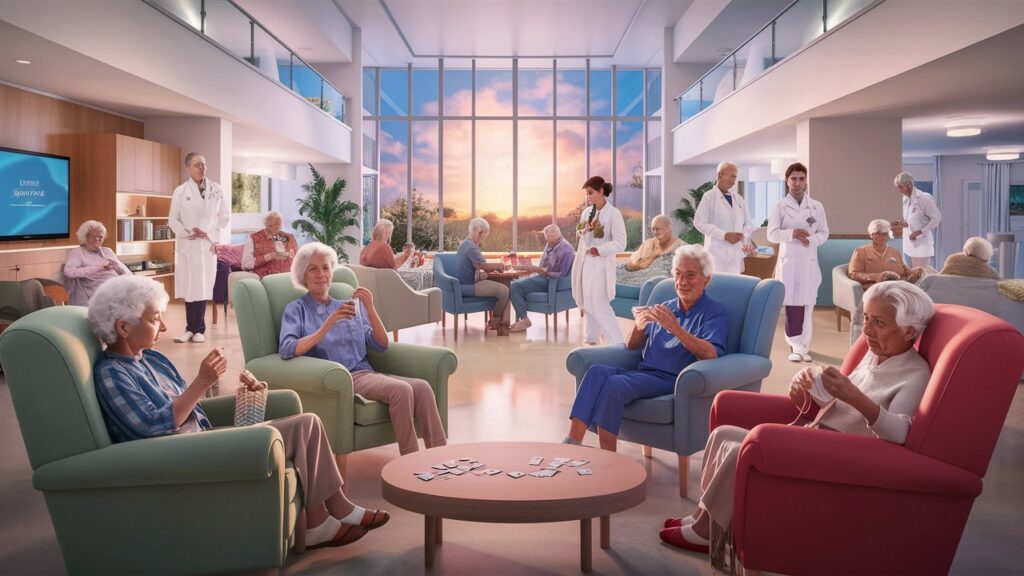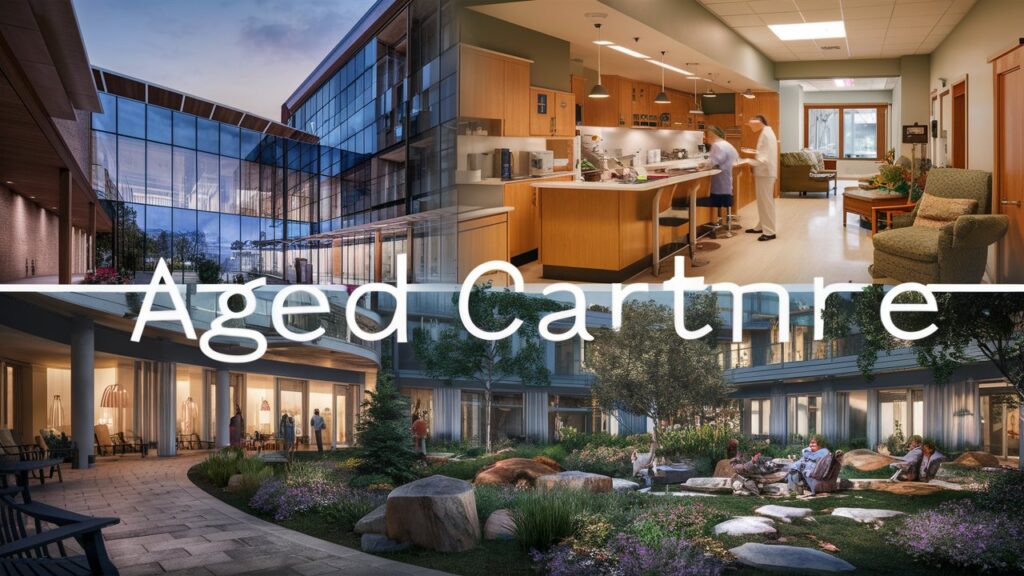In the intricate landscape where health care intersects with aged care, understanding the nuances and dynamics is crucial. This article aims to shed light on this vital aspect, delineating its significance, classifications, symptoms, causes, treatments, preventive measures, real-life implications, expert insights, and more.

Define the Topic
Health care and aged care converge where the health needs of aging individuals meet the specialized services tailored to their unique requirements. This encompasses a wide array of medical, emotional, and social support aimed at ensuring the well-being and quality of life for seniors.
Relevance and Importance
With global demographics shifting towards an aging population, the integration of health and aged care becomes paramount. It not only addresses the immediate health concerns of seniors but also acknowledges the dignity and respect they deserve in their golden years.
Types and Categories
Traditional Nursing Homes
These facilities provide round-the-clock medical care and assistance with daily activities for seniors who require extensive support due to physical or cognitive impairments.
Assisted Living Communities
Designed for seniors who need some assistance with daily tasks but prefer to maintain independence, assisted living communities offer a balance of support and autonomy.
Memory Care Facilities
Specialized facilities catering to individuals suffering from Alzheimer’s disease or other forms of dementia, providing tailored care and a secure environment.
In-Home Health Care
Allowing seniors to age in place, in-home health care services offer medical assistance, companionship, and support tailored to individual needs.
Palliative Care
Focused on enhancing quality of life for seniors with serious illnesses, palliative care emphasizes symptom management, emotional support, and holistic well-being.
Respite Care
Offering temporary relief to primary caregivers, respite care services ensure that seniors receive the necessary support while their caregivers take a break.
Symptoms and Signs
Physical Decline
Common symptoms include mobility issues, chronic pain, fatigue, and decreased stamina, affecting the overall quality of life for seniors.
Cognitive Impairment
Signs may include memory loss, confusion, disorientation, and difficulty in performing familiar tasks, indicative of conditions like dementia or Alzheimer’s disease.
Emotional Distress
Seniors may experience feelings of loneliness, depression, anxiety, or social isolation, stemming from various factors such as loss of loved ones, health concerns, or life transitions.
Functional Decline
Difficulty in managing daily activities like bathing, dressing, cooking, or managing medications may signify a decline in functional abilities and the need for additional support.
Causes and Risk Factors
Aging Process
As individuals age, physiological changes occur in the body, increasing susceptibility to chronic illnesses, cognitive decline, and functional limitations.
Chronic Health Conditions
Conditions like diabetes, hypertension, heart disease, and arthritis become more prevalent with age, contributing to the complexity of health care needs among seniors.
Lifestyle Factors
Poor nutrition, sedentary lifestyle, smoking, excessive alcohol consumption, and lack of social engagement can exacerbate health issues and diminish overall well-being in older adults.
Environmental Factors
Unsafe living conditions, lack of access to health care services, social isolation, and limited transportation options can adversely affect seniors’ health and quality of life.
Diagnosis and Tests
Comprehensive Geriatric Assessment
A multidimensional evaluation encompassing medical, functional, cognitive, and psychosocial domains to assess seniors’ overall health status and care needs.
Cognitive Screening Tests
Tools like the Mini-Mental State Examination (MMSE) or Montreal Cognitive Assessment (MoCA) help identify cognitive impairment and track changes over time.
Laboratory Tests
Blood tests, urinalysis, and imaging studies may be conducted to diagnose medical conditions, assess organ function, and guide treatment decisions.
Functional Assessments
Assessing seniors’ ability to perform activities of daily living (ADLs) and instrumental activities of daily living (IADLs) helps determine the level of assistance required.

Treatment Options
Medication Management
Prescription medications, supplements, and alternative therapies may be prescribed to manage chronic conditions, alleviate symptoms, and improve overall health outcomes.
Physical Therapy
Tailored exercise programs, mobility aids, and therapeutic interventions help seniors regain strength, improve balance, and enhance functional independence.
Cognitive Stimulation
Engaging activities, memory exercises, and cognitive rehabilitation techniques can help slow down cognitive decline and enhance brain function in seniors with dementia.
Pain Management
Multimodal approaches incorporating medications, physical therapy, acupuncture, and psychological interventions aim to alleviate pain and improve quality of life.
Preventive Measures
Healthy Lifestyle Choices
Encouraging seniors to adopt a balanced diet, engage in regular exercise, quit smoking, limit alcohol intake, and stay socially active promotes overall health and well-being.
Regular Health Screenings
Routine check-ups, immunizations, cancer screenings, and preventive health services help detect and manage health issues early, preventing complications and improving outcomes.
Home Safety Modifications
Installing grab bars, handrails, non-slip mats, and adequate lighting minimizes fall risks and creates a safe living environment for seniors aging in place.
Advance Care Planning
Initiating conversations about end-of-life preferences, appointing a healthcare proxy, and documenting wishes regarding medical treatment ensures that seniors’ wishes are respected.
Personal Stories or Case Studies
Maria’s Journey: Navigating the Challenges of Aging Alone
Maria, a vibrant 75-year-old widow, shares her experience of aging independently and the challenges she faces in managing her health and daily activities.
John’s Struggle with Dementia: A Son’s Perspective
John reflects on his father’s journey with dementia, highlighting the emotional toll it takes on families and the importance of compassionate care and support.
Expert Insights
Dr. Patel’s Perspective: Holistic Approach to Geriatric Care
Dr. Patel, a renowned geriatrician, emphasizes the importance of holistic care, personalized treatment plans, and interdisciplinary collaboration in addressing seniors’ complex needs.
Nurse Sarah’s Advice: Empowering Seniors to Take Charge of Their Health
Nurse Sarah shares practical tips on promoting healthy aging, fostering independence, and supporting seniors in making informed decisions about their health and well-being.
Conclusion
In conclusion, the intersection of health care and aged care represents a multifaceted domain that demands attention, compassion, and innovation. By understanding the diverse needs of seniors, embracing holistic approaches, and fostering collaborative efforts, we can ensure that aging individuals receive the care and support they deserve, enriching their lives and preserving their dignity.
